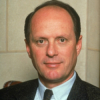Robert Ballard

Robert Ballard
Robert Duane Ballardis a retired United States Navy officer and a professor of oceanography at the University of Rhode Island who is most noted for his work in underwater archaeology: maritime archaeology and archaeology of shipwrecks. He is most known for the discoveries of the wrecks of the RMS Titanic in 1985, the battleship Bismarck in 1989, and the aircraft carrier USS Yorktown in 1998. He discovered the wreck of John F. Kennedy's PT-109 in 2002 and visited Biuku Gasa and...
NationalityAmerican
ProfessionExplorer
Date of Birth30 June 1942
CityWichita, KS
CountryUnited States of America
You don't go to Gettysburg with a shovel, you don't take belt buckles off the Arizona.
What drives me is exploration with a purpose, more the classic Royal Geographical Society genre.
The body is sort of a pain. It has to go to the bathroom. It has to be comfortable. But the spirit is indestructible. It can move at the speed of light.
There's a long list of technologies that have now made it possible to carry out very precise search efforts in the deep sea.
So, you know, I think the age of exploration is just beginning, not ending, on our planet.
I would have to say my favorite place on Earth is Bora Bora.
I prefer sayings over jokes.
You can only inspire when you give people a new way of looking at the world in which they live.
I mean, technology is amoral. It has no morality.
Why are we ignoring the oceans? Why does NASA spend in one year what NOAA will spend in 1600 years? Why are we looking up? Why are we afraid of the ocean?
My family came in 1635 from England and settled in Williamsburg. Shortly after, they split up; half went to New England and half stayed in Virginia. I'm a Virginian Ballard.
I mean, there is amazing amount of oil and gas and other resources out beneath the sea. It's staggering.
The DEEP SEA has more history in it than all the museums of the world-combined.
Most of the time you are growing up, people tell you what's wrong with you. Your coach tells you, your parents tell you, the teachers tell you when they grade you. I think that's very good in the early stages, because it helps you then develop skills. But at some point in your career, generally I think when you are in your teens, you look in a mirror and you have to say, despite all the bumps and warts, "I like that person I'm looking at, and let's just do our best."